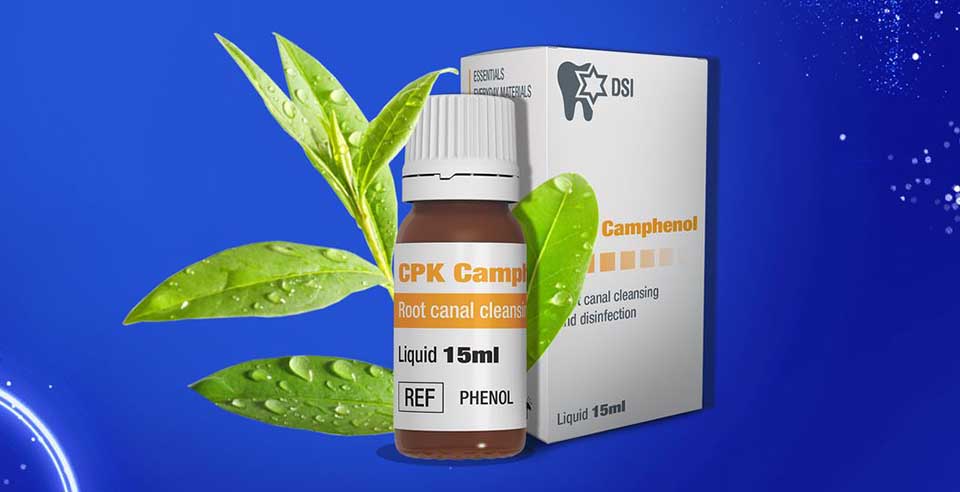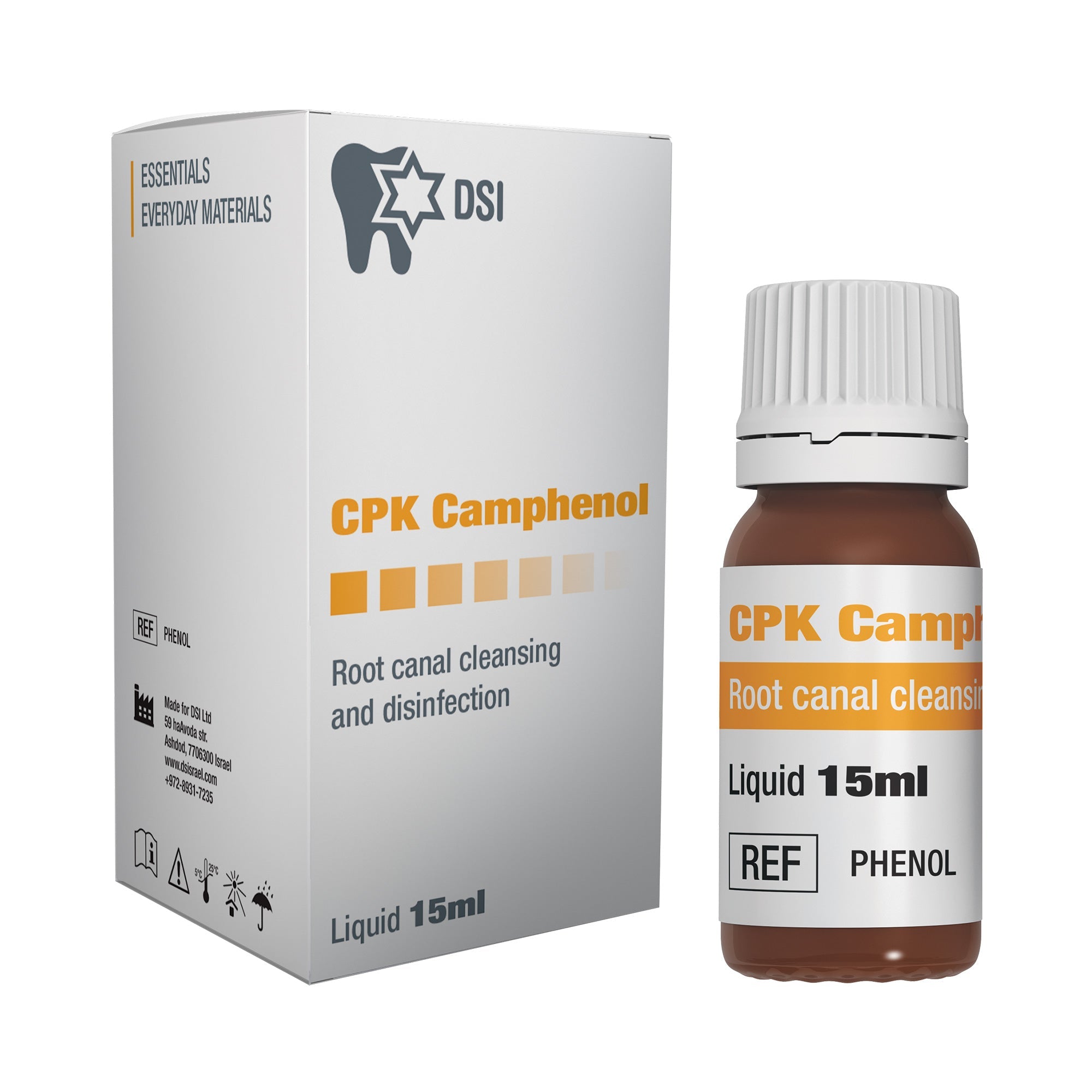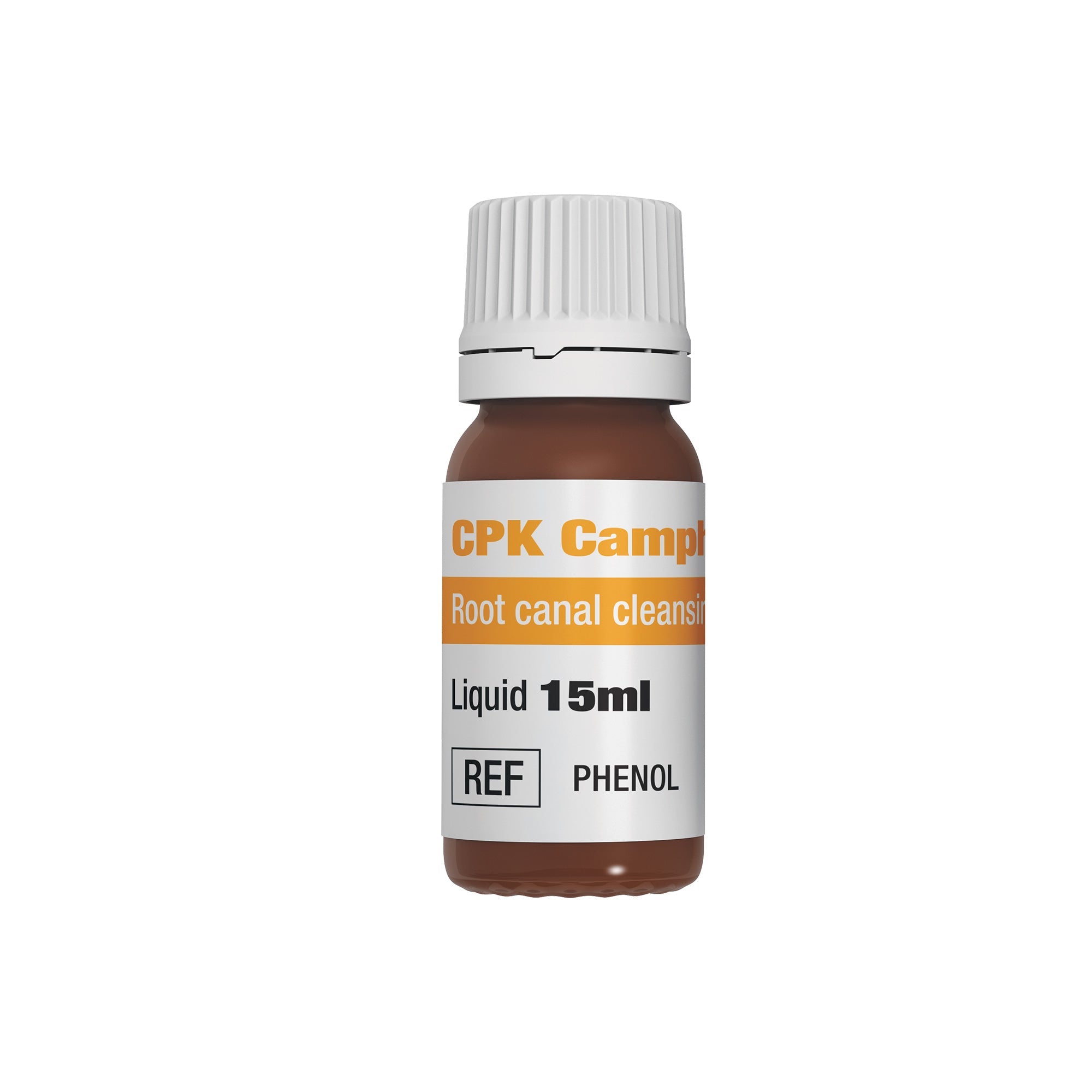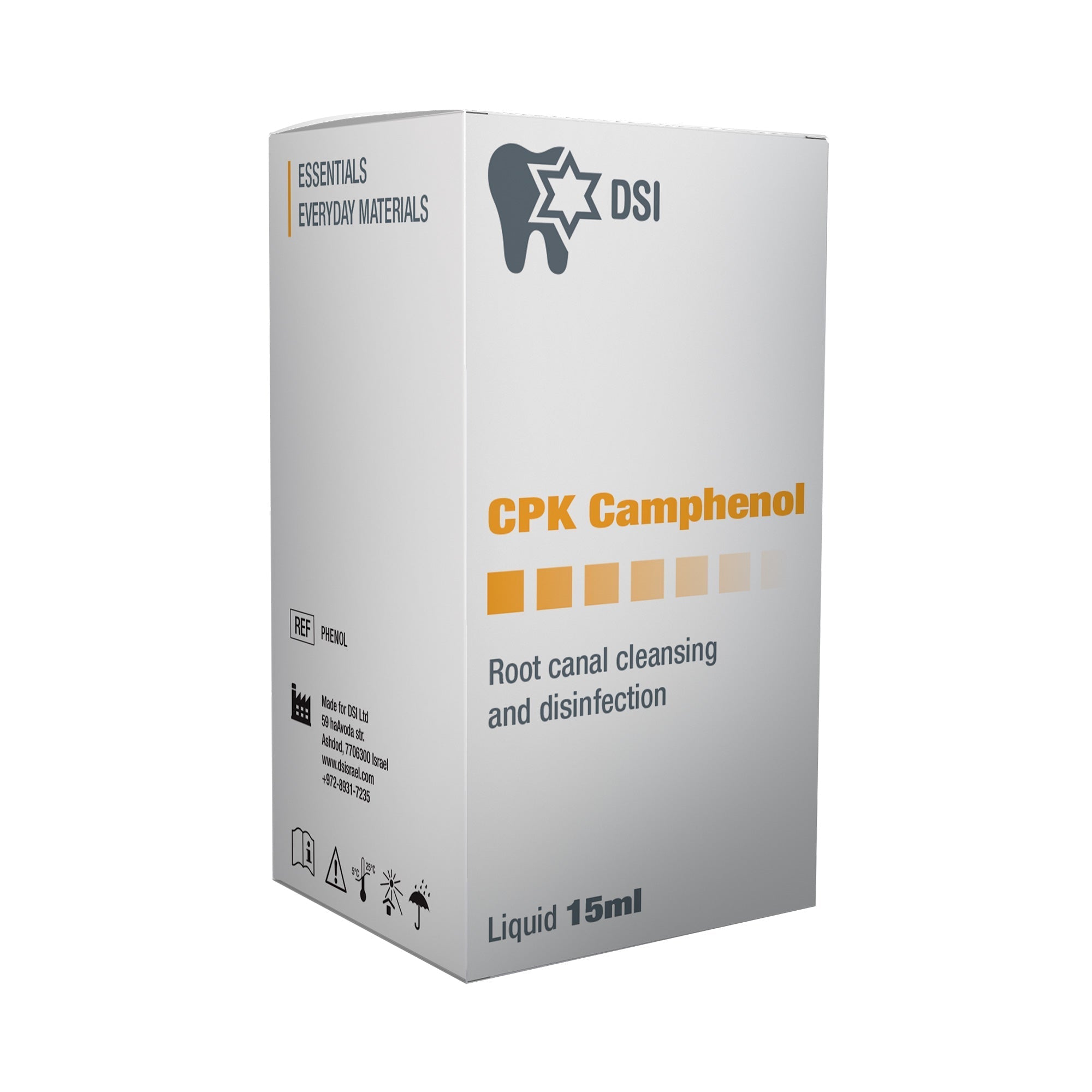Camphenol is ideal for root canal therapy because of its ability to disinfect even the most confined spaces within the intricate network of dental tubules while remaining gentle on oral tissue. Camphenol has excellent antiseptic properties and a high efficacy in combating various types of fungi/bacteria found in inflamed structures of patients. It is effective against even the most resistant bacterial strains. When it comes to the complex procedure of root canal treatment, the preservation of the tooth's natural structure and the prevention of any potential infections take precedence. When a root canal is obturated, the presence of bacteria can lead to treatment failure. As a result, eliminating bacteria is crucial to endodontic success. Root canal therapy necessitates a methodical approach that includes the use of multiple substances to ensure proper disinfection of the root canal system.
Camphenol, a powerful antimicrobial agent with exceptional antibacterial and antifungal properties, has proven to be useful in achieving this goal. Extensive scientific research at various levels confirms conclusively that Camphenol exhibits exceptional efficacy levels when used in procedures aimed at decontaminating difficult-to-reach areas inside teeth using minimally invasive techniques. The solution improves success rates significantly by lowering the risk of reinfection. Incorporating Camphenol into standard practice helps to ensure high survival rates, which are important for long-term functionality after endodontic intervention such as root canal therapy.
Product SKU's
| Product | Code |
|---|---|
| DSI Camphenol, liquid 15ml | PHENOL |
Contraindication
If the storage, transportation, and instruction conditions are met,
There should be no negative consequences if the requirements are met.
Instructions
Sterile cotton swabs or balls are inserted into the cavity or root canal without applying pressure and are isolated by a temporary material with a few drops of material applied to fully saturate but without leakage. After 3-4 days, the canal/cavity may be treated again with the liquid, dried out, sealed with paste, and isolated with permanent cement as determined by the doctor. To complete the procedure, tooth crown restoration is advised.
Features
- Antimicrobial agent with high potency
- Antibacterial and antifungal properties that are second to none
- Even highly resistant bacterial strains can be eliminated.
- PA tissues are not irritated.
- Consistent in solution
For more information



